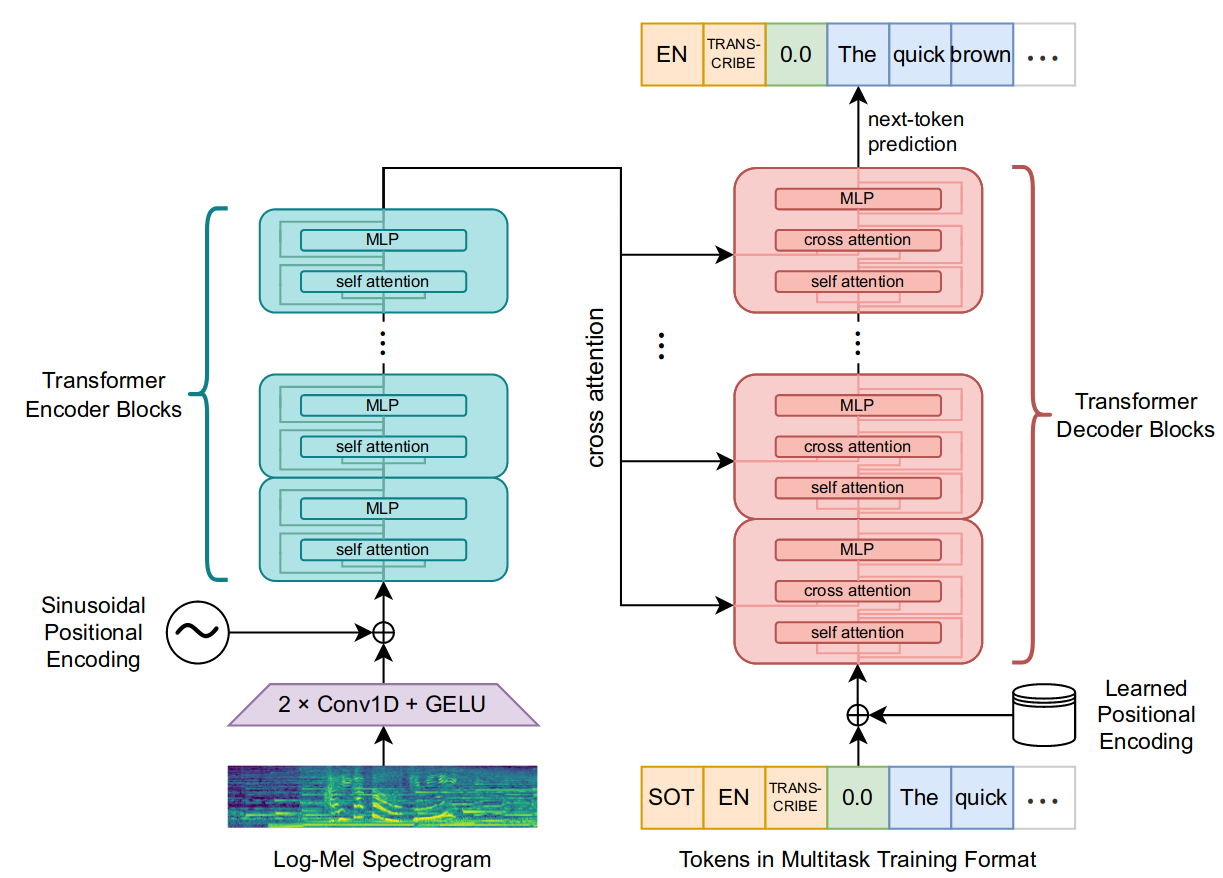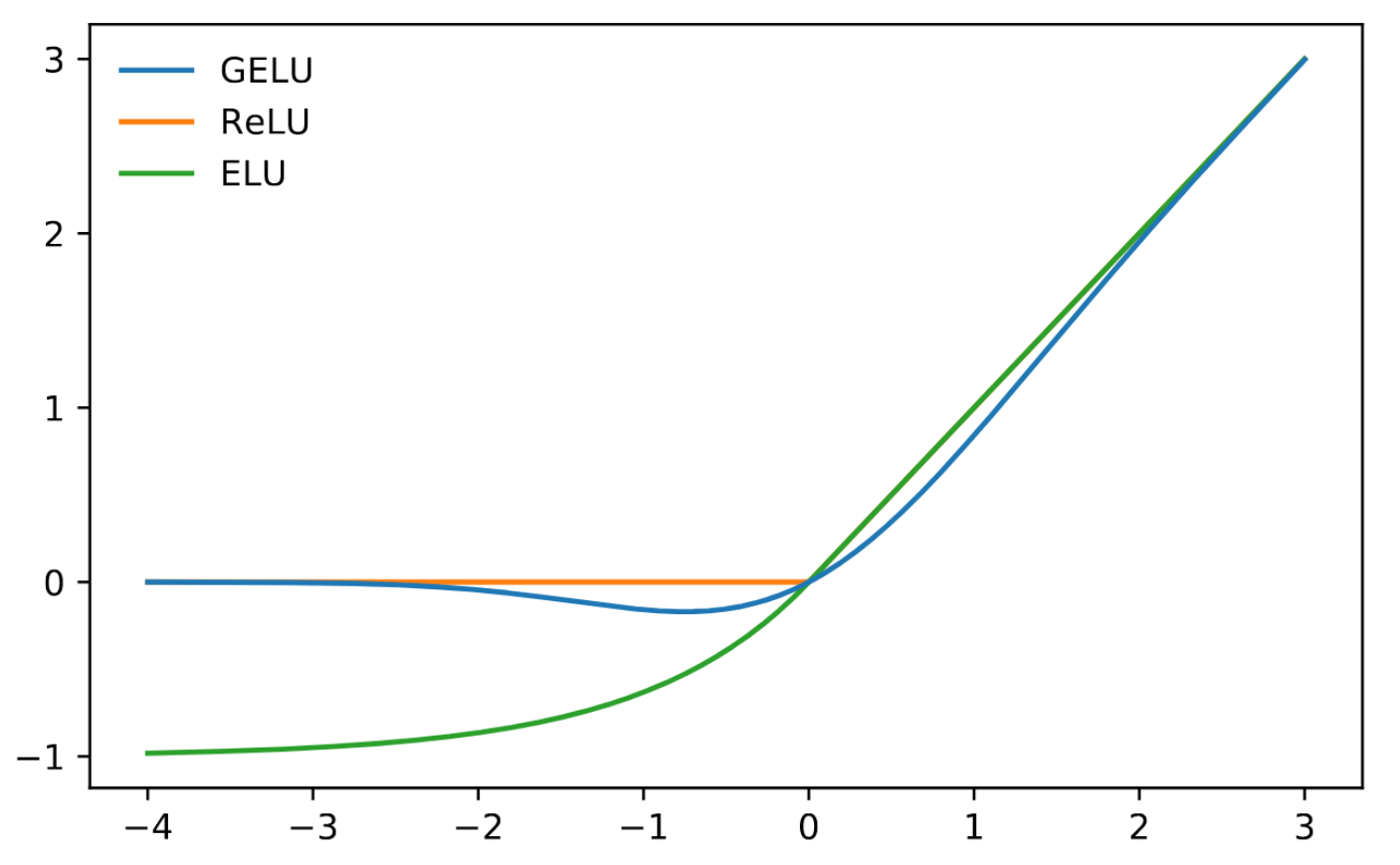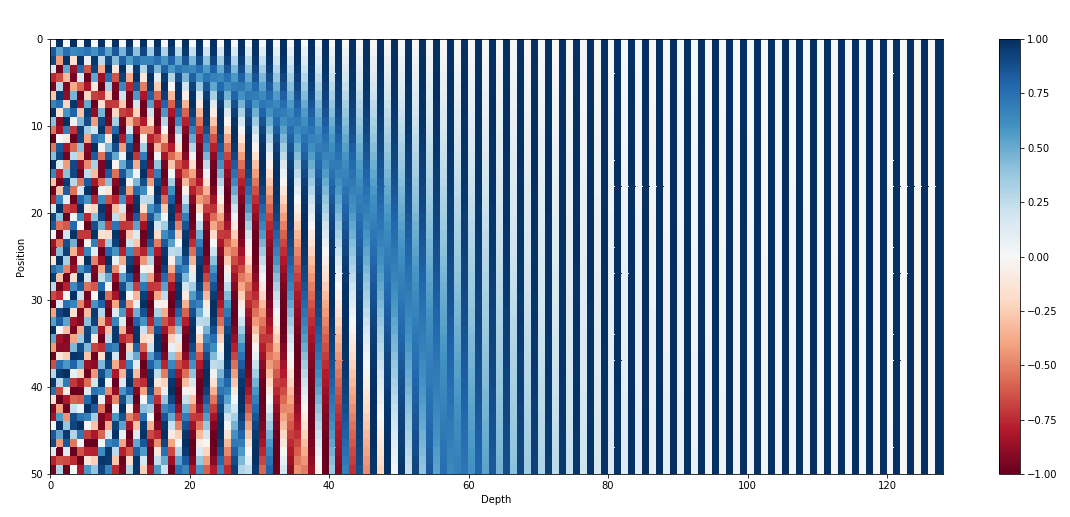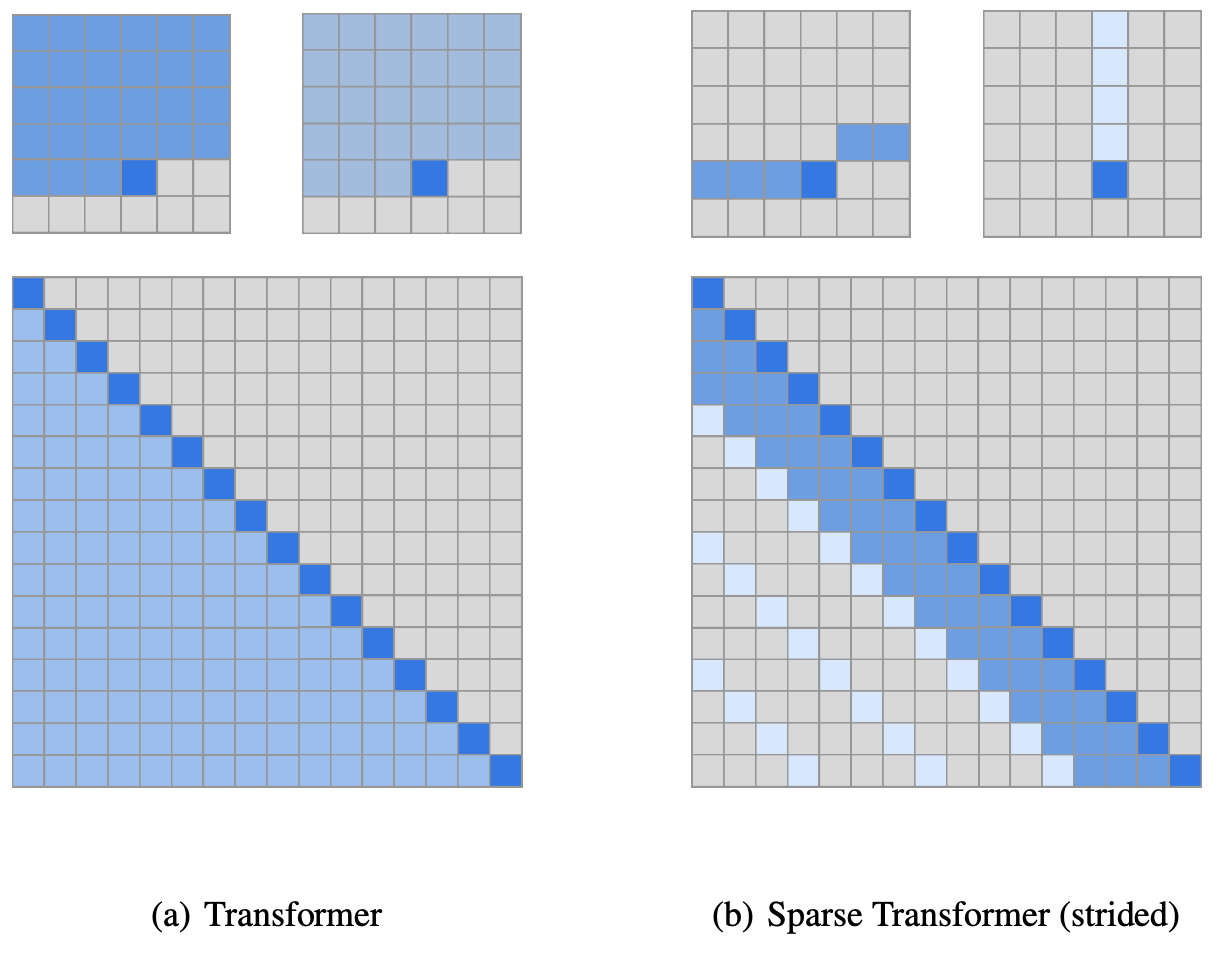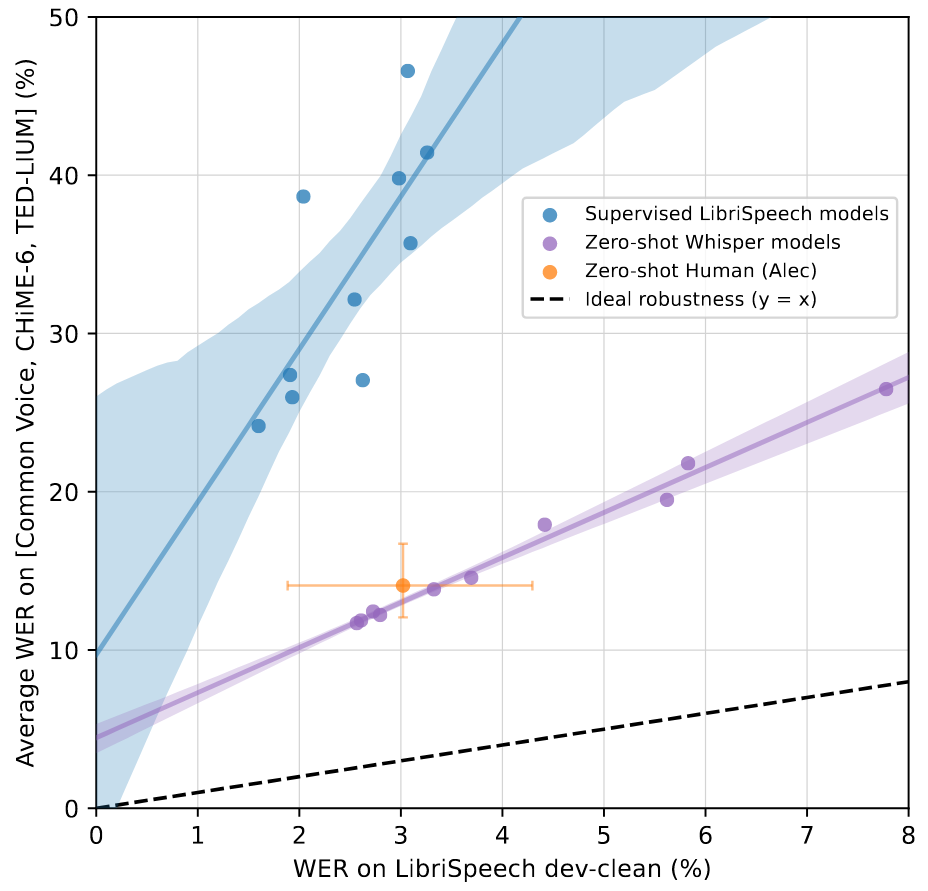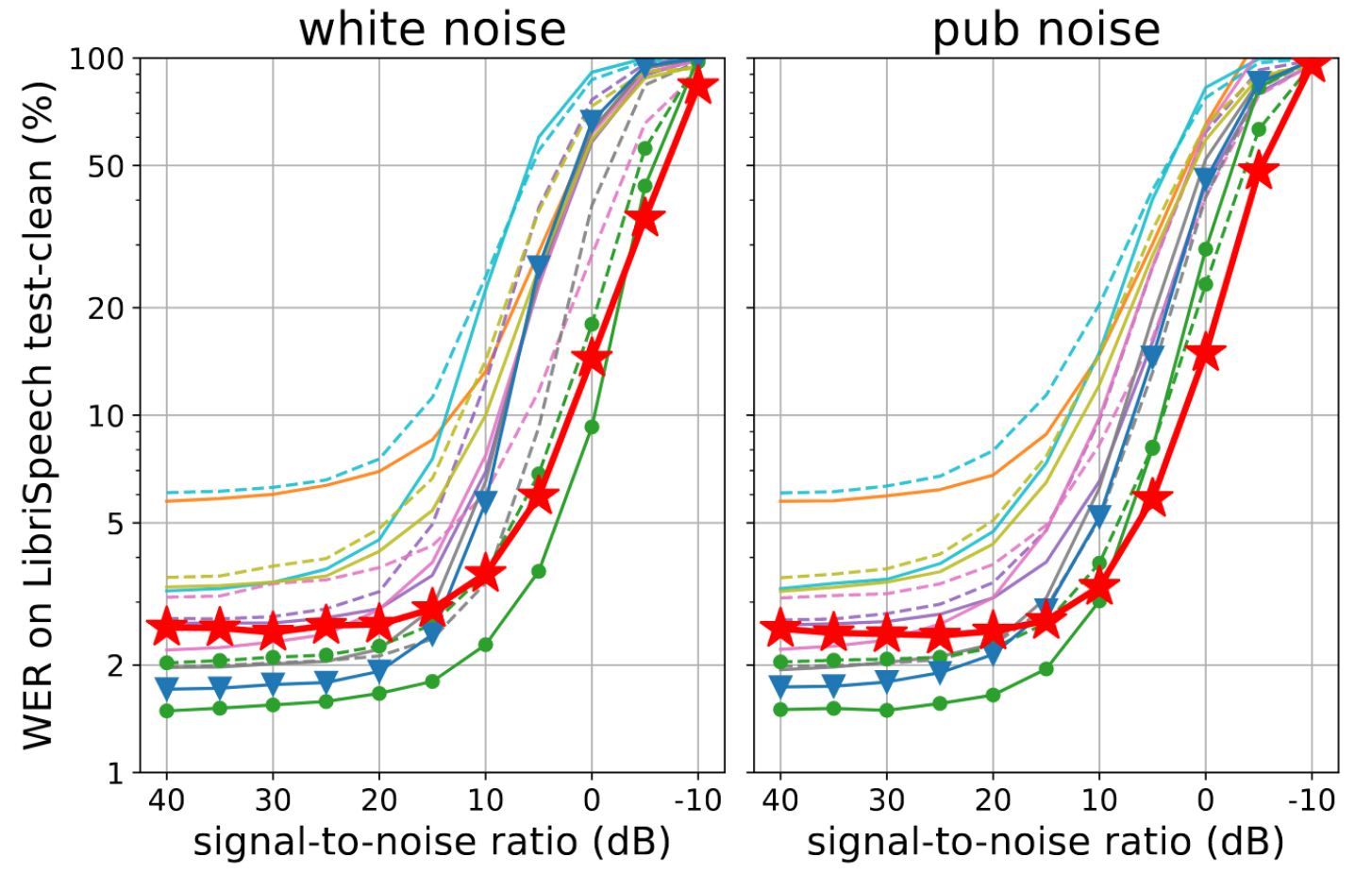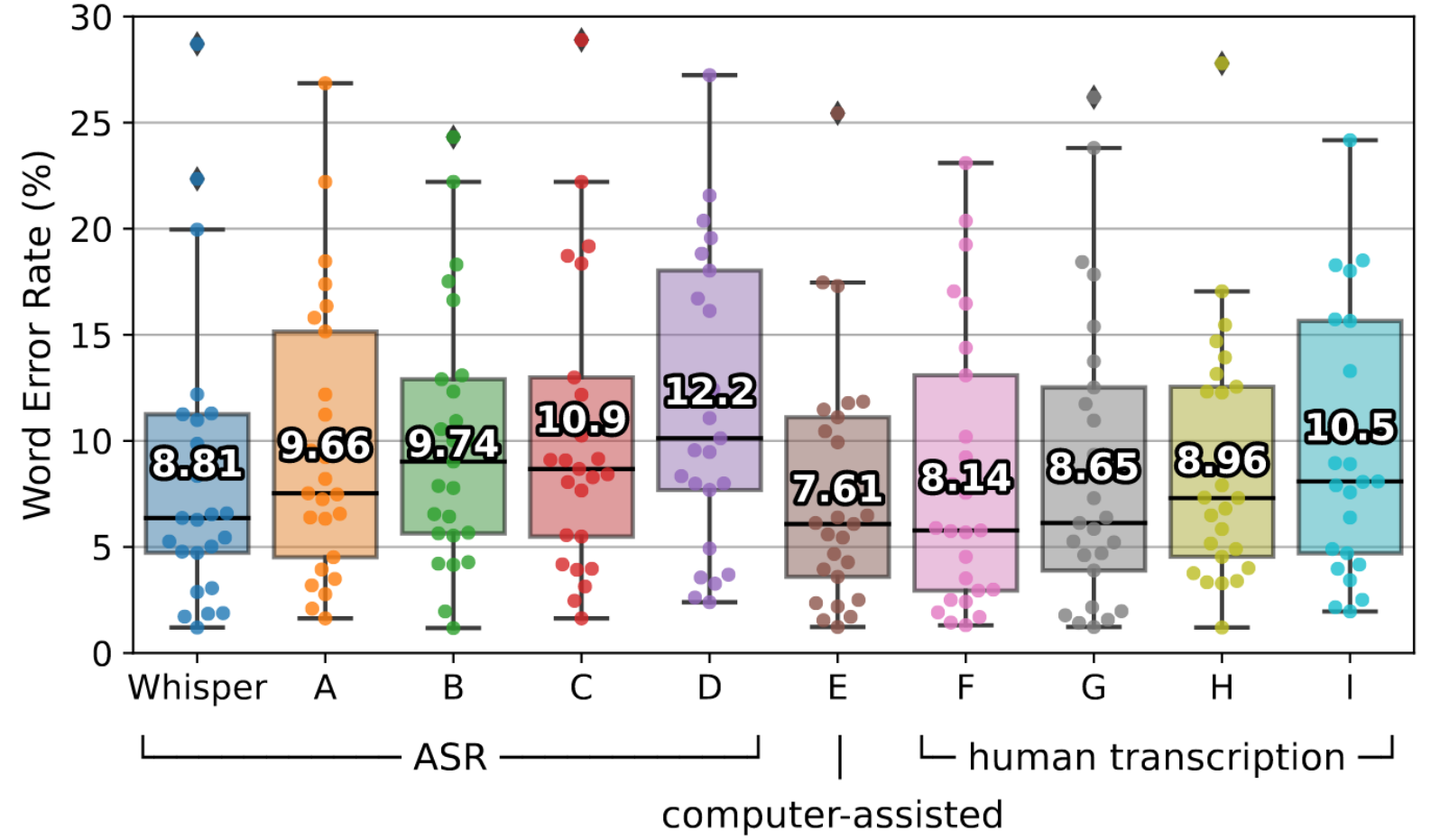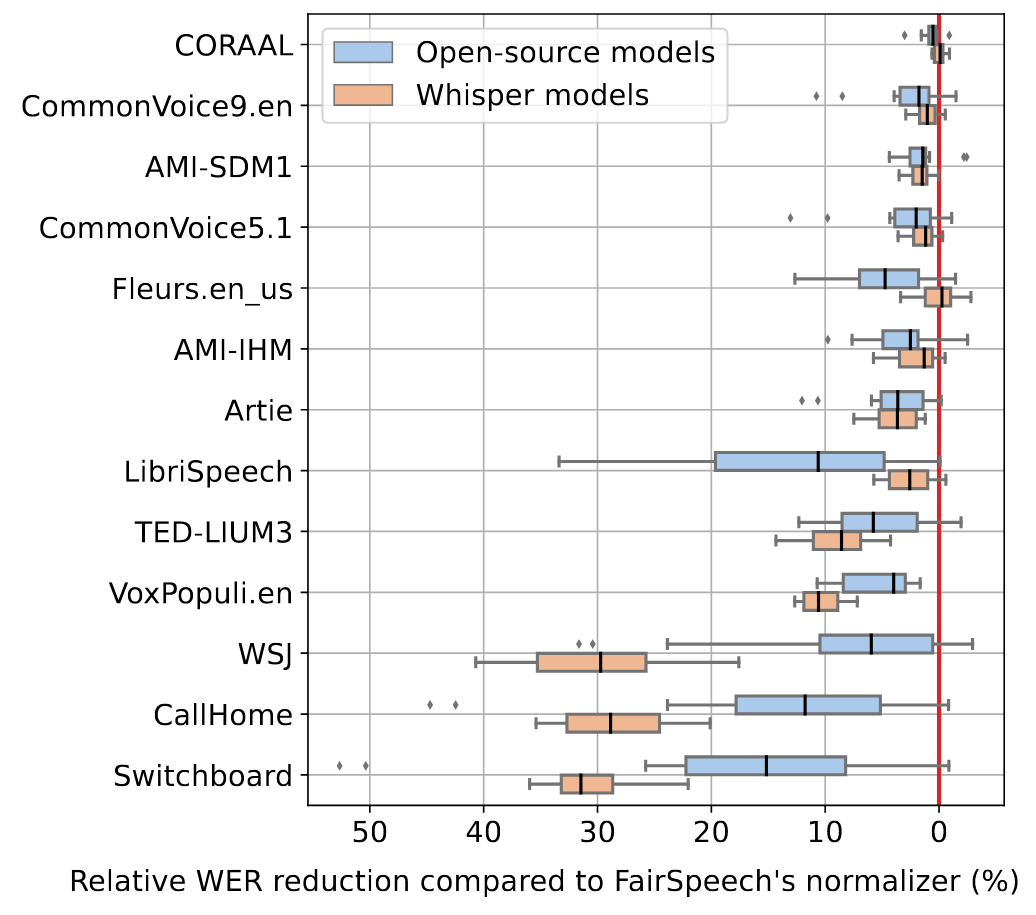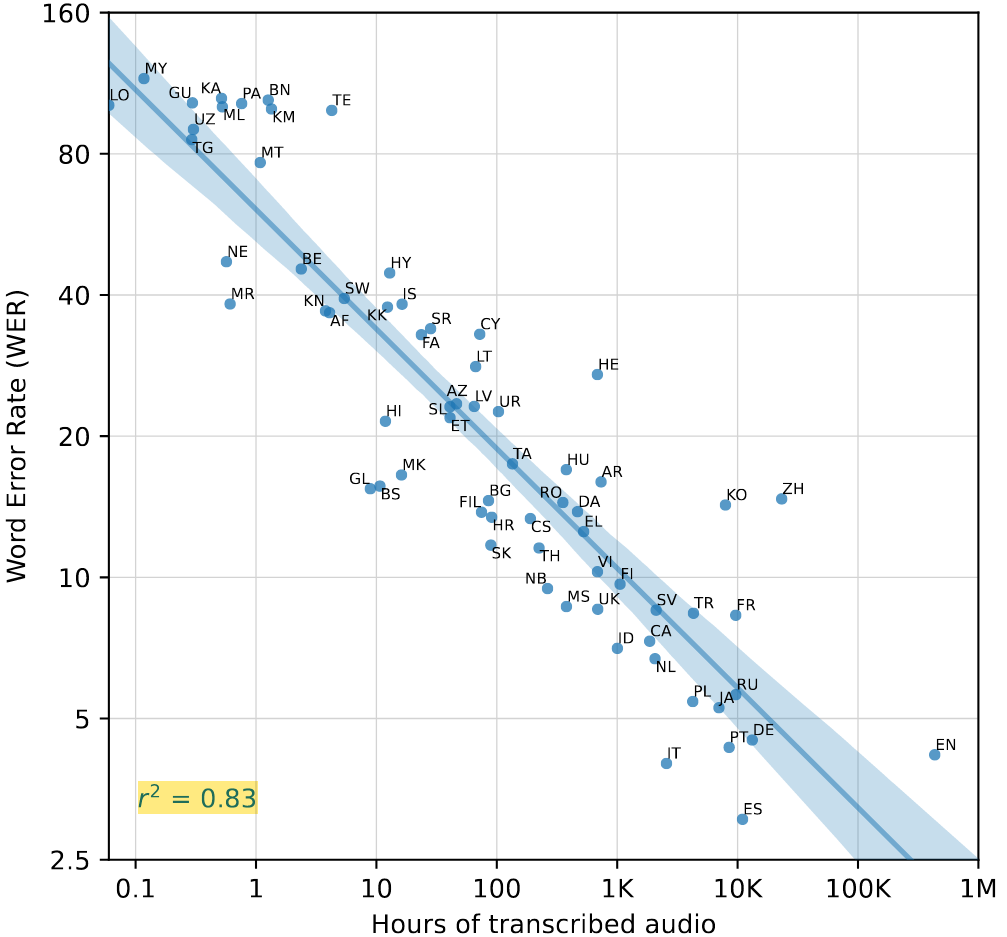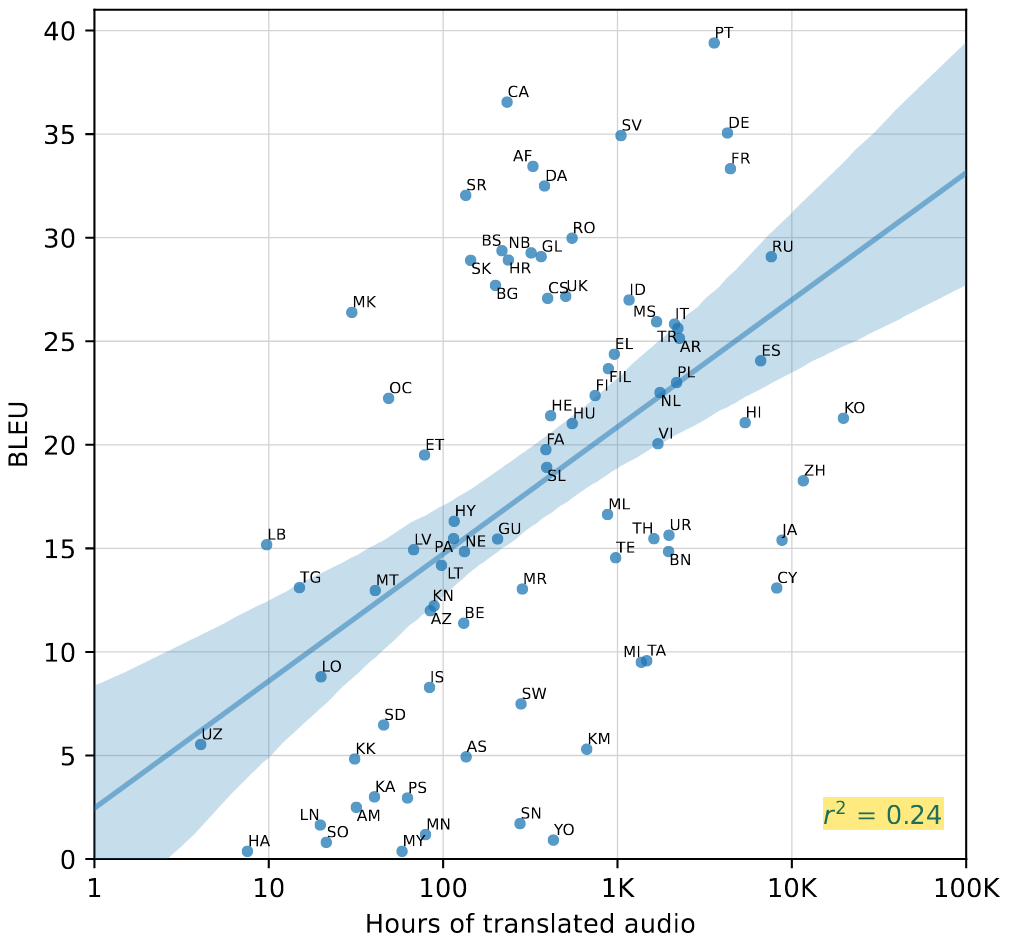15 KiB
| marp | paginate | author | math |
|---|---|---|---|
| true | true | Laurent Fainsin | katex |
Whisper
Robust Speech Recognition via Large-Scale Weak Supervision
Web-scale Supervised Pretraining for Speech Recognition. Alec Radford, Jong Wook Kim, Tao Xu, Greg Brockman, Christine McLeavey, Ilya Sutskever. OpenAI, San Francisco. September 2022. arXiv:2212.04356.
Context
- The trend is toward unsupervised learning (Wav2Vec 2.0, 1M hours of training data)
\rightarrowgood audio encoders but fine-tuning required. - Pre-training on multiple supervised datasets and domains improves speech recognition robustness and generalization.
- Limited availability of labeled data in speech recognition, current datasets like SpeechStew only totals 5,140 hours of supervision.
- Recent efforts to create larger datasets for speech recognition by relaxing the requirement of gold-standard human-validated transcripts.
- Trade-off between quality and quantity, similar to computer vision where larger weakly supervised datasets significantly improve model robustness and generalization.
Dataset & Data Processing
- Broad distribution of audio from many different environments, recording setups, speakers, and languages, salvaged from the internet.
- Audio language detector and heuristics to detect and filter bad/duplicate transcriptions.
- New dataset: 680,000 hours of weakly labeled audio data, including 117,000 hours of audio for 96 other languages and 125,000 hours of english translation data.
Model
GELU
$\displaystyle \text{GELU}(x) = x P(X \leq x) = x\Phi(x) = x \frac12 \left[ 1 + \text{erf} \left( x / \sqrt2 \right) \right]$
X \rightarrow \mathcal{N}(0, 1)
Sinusoidal position embeddings
\displaystyle f(t)^{(i)} = \left\{ \begin{array}{l} sin(wk.t), \quad\text{if} i=2k \\ cos(wk.t), \quad\text{if} i=2k+1 \end{array}\right. \quad w_k = \frac{1}{10000^{2k/d}}
Sparse
Transformer
Multitask
Training
| Hyperparameter | Value |
|---|---|
| Updates | 1048576 |
| Batch Size | 256 |
| Warmup Updates | 2048 |
| Max grad norm | 1.0 |
| Optimizer | AdamW |
| β1 | 0.9 |
| β2 | 0.98 |
| ε | 10−6 |
| Weight Decay | 0.1 |
| Weight Init Gaussian | Fan-In |
| Learning Rate Schedule | Linear Decay |
| Speechless audio subsample factor | 10× |
| Condition on prior text rate | 50% |
WER metric
\text{WER} = \frac{S + D + I}{N} = \frac{S + D + I}{S + D + C}S is the number of substitutions
D is the number of deletions
I is the number of insertions
C is the number of correct words
N is the number of words in the reference
(N=S+D+C)
Evaluation
| Dataset | wav2vec 2.0 Large (no LM) |
Whisper Large V2 |
RER (%) |
|---|---|---|---|
| LibriSpeech Clean | 2.7 | 2.7 | 0.0 |
| Artie | 24.5 | 6.2 | 74.7 |
| Common Voice | 29.9 | 9.0 | 69.9 |
| Fleurs En | 14.6 | 4.4 | 69.9 |
| Tedlium | 10.5 | 4.0 | 61.9 |
| CHiME6 | 65.8 | 25.5 | 61.2 |
| VoxPopuli En | 17.9 | 7.3 | 59.2 |
| CORAAL | 35.6 | 16.2 | 54.5 |
| AMI IHM | 37.0 | 16.9 | 54.3 |
| Switchboard | 28.3 | 13.8 | 51.2 |
| CallHome | 34.8 | 17.6 | 49.4 |
| WSJ | 7.7 | 3.9 | 49.4 |
| AMI SDM1 | 67.6 | 36.4 | 46.2 |
| LibriSpeech Other | 6.2 | 5.2 | 16.1 |
| Average | 29.3 | 12.8 | 55.2 |
Robustness to noise
Human comparison & improvements
Model Scaling
| Model | Layers | Width | Heads | Parameters | Required VRAM | Relative speed |
|---|---|---|---|---|---|---|
| Tiny | 4 | 384 | 6 | 39M | ~1 GB | ~32x |
| Base | 6 | 512 | 8 | 74M | ~1 GB | ~16x |
| Small | 12 | 768 | 12 | 244M | ~2 GB | ~6x |
| Medium | 24 | 1024 | 16 | 769M | ~5 GB | ~2x |
| Large | 32 | 1280 | 20 | 1550M | ~10 GB | 1x |
Model Scaling
Dataset Scaling
| Dataset size (h) |
English WER (↓) |
Multilingual WER (↓) |
X→En BLEU (↑) |
|---|---|---|---|
| 3405 | 30.5 | 92.4 | 0.2 |
| 6811 | 19.6 | 72.7 | 1.7 |
| 13621 | 14.4 | 56.6 | 7.9 |
| 27243 | 12.3 | 45.0 | 13.9 |
| 54486 | 10.9 | 36.4 | 19.2 |
| 681070 | 9.9 | 29.2 | 24.8 |
